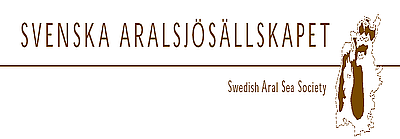Introducing Sustainable Development
You have certainly already many times encountered the term sustainable development. You see it in newspapers, in political discussions and today even in advertisements. It became well known after the United Nations Conference in Rio de Janeiro, 1992. As this was just at the end of the Cold War the nations of the world were unusually united: both East and West, industrialized and developing nations took part. Since then, sustainable development has increasingly become common vocabulary.
Development is perceived as something positive, a qualitative improvement. Sustainable refers to something that can or should last in the long-term. The first reasons for the concern for sustainable development was the fear that the world would not last, that it was on a wrong track. That fear has since then mounted. We see increasing climate change and its consequences: disasters, such as storms, floods, and draughts and a melting arctic ice. We see declining or collapsing fish stocks, biodiversity decline and deforestation. While greenhouse gases in the atmosphere increase unabated, resources such as oil, phosphorus and several metals seem to approach their end. The situation is already an emergency; no wonder that much despair about the future for themselves and their children.
As a counterforce, the idea of sustainable development has become one of the leading aspirations of humankind in our time. Civil society organizations as well as governments all over the world have embraced the concept. It has become the foremost challenge of the 21st century, and the most important tool to address our problems. What is it actually?
Sustainable development is different from many other concepts, as it is so all-inclusive. It includes everything from personal ideas and perceptions, to technical development and political programs. It is based on knowledge, which partly is age-old, e.g. in agriculture, and partly completely new, such as new technologies and social and economic arrangements. As a knowledge-based undertaking, sustainable development is based on a systems approach. One refers to the dimensions of sustainable development as ecological, social and economic, which all are interdependent and all needs to be included. That makes sustainability as a topic of study challenging. In at least some areas, we are all beginners. It also opens up for dialogue and different views and opinions.
But we need this study. We need an ongoing dialogue to foster a shared vision of how to progress to a better future; we need an established theory and practice of sustainable development. With the present course, offered to anyone interested, the Baltic University Programme aims to contribute to this agenda. You are invited as a student to use a part or all of the material. We sincerely hope that you will join the group of those who contribute to a change, and create a better future.
